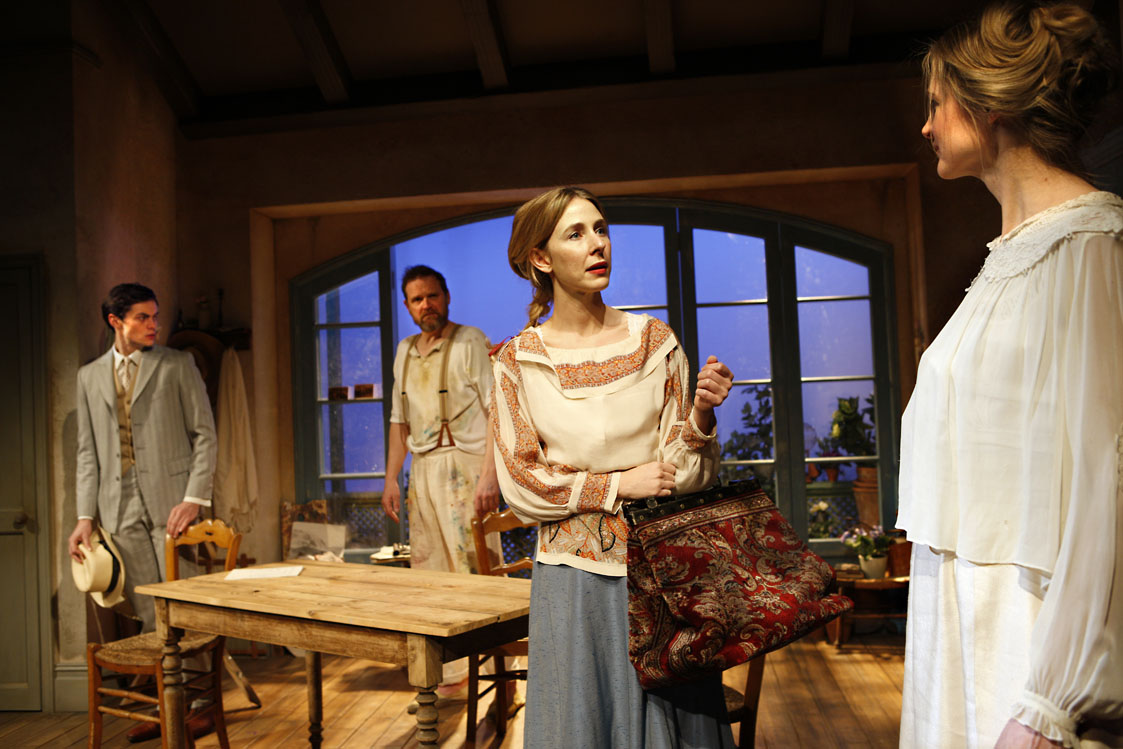
Written early in Granville Barker’s career at the turn of the last century and only recently rediscovered amongst his papers, this is a play that feminists could happily put on the shelf marked, ‘On the side of the angels’. It explores a woman’s search for autonomy and fulfilment. Agnes Colander is an artist trying to escape ‘the loneliness of marriage’. It begins in her London garret studio, with Agnes already separated from her writer husband and experimenting emotionally with a tautly strung young puppy of a chap, Alexander (Freddy Carter) and a bohemian artist, Otho Kjoge (Matthew Flynn).
With Kjoge, being a foreigner and an artist he is the door through which ‘The sex thing’ can be (delicately) allowed into conversation. This is an area where Granville Barker perhaps got it wrong, with Agnes avowedly less than enthusiastic about that side of relationships, having given her ‘maidenhood’ to a man who made her feel like, ‘An extra rib dressed up’. However, to give him the benefit of the doubt, perhaps he didn’t want to cloud the main issue with another that might have been more indigestible a Victorian audience. His central concern was one already explored by Ibsen in The Lady from the Sea and so was a subject on which the door was already slightly ajar. It is a subject summed up by a phrase in Willy Russel’s Shirley Valentine, the ‘Unused life’ of a woman.
The scene moves to the South of France, where Agnes has taken up with Kjoge who she describes to fellow expat, Emmeline Marjoribanks (Sally Scott) as her husband. He turns out to be a pig and somewhat less than perfect, finding himself unable to resist the charms of Emmeline. She, with decidedly (and hypocritically) conventional views on marriage is more moth-like in her attraction to Kjoge. With the revelation of the dalliance Agnes returns home to London with Alex who has trailed out to France after her, the sojourn having left her the stronger and wiser.
Unsurprisingly Agnes gets the fullest treatment from Granville Barker and Naomi Frederick brings an ethereal quality to a complex and roundly drawn character eager to explore the potential of being human. Indeed with Trevor Nunn having at moments created tableaux that seemed to spring from Victorian genre painting it comes as a mild shock to hear her chirpily referring to ‘country matters’ with a near modern turn of honesty. The ‘far off’ look she assumed at times reminded one of Holman Hunt’s, The Awakening Conscience which, if re-titled ‘The Awakening Potential’ could stand as a defining image for the play.
The acting, notably in the pauses, (last night was a pre-national press performance) was a little awkward. The cast were still finding their way into expressing the densely packed ideas without seeming relentlessly earnest. It seemed, last night at least, that Trevor Nunn had given his cast an intricately embroidered coat a size and a half too big in the expectation that they would rapidly grow into it. ★★★☆☆ Graham Wyles 21st March 2018
Photo by Simon Annand

